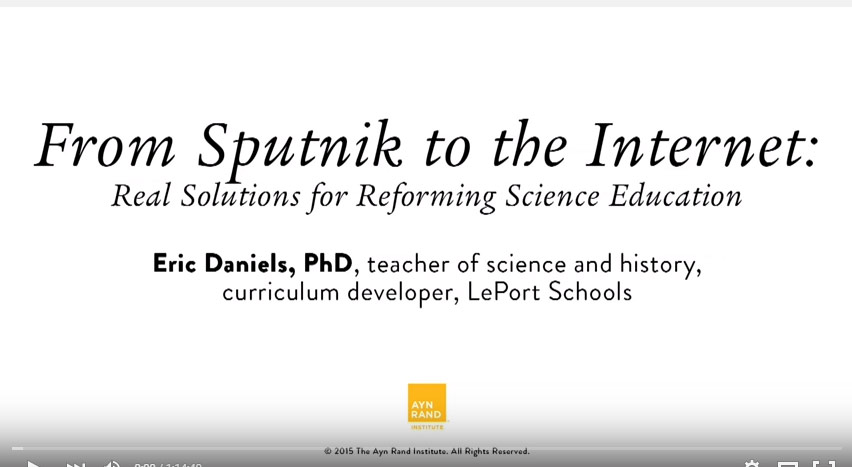I was very pleased yesterday when I saw a link for a new talk from one of my favorite speakers, Eric Daniels. In this video of a talk from OCON 2015, he discusses the problems he sees in science education today, the historical roots of those problems, and potential solutions to them.
He gives a quote from an historian that summarizes one way in which science education has gone wrong.
In the relatively short time between 1893 and 1920, the justification for science in the curriculum had shifted from an argument based exclusively on science’s ability to develop one’s intellectual skills, especially the ability to observe accurately and reason inductively on the basis of evidence, to one based on science’s ability to develop an individual who would be a happy, contributing member of society.
As he explains, in the Progressive era the standard in science education moved from developing intellectual skills to a focus on whether it was “socially relevant.” In that period science education became focused on finding solutions to “urban blight and prostitution and over consumption of alcohol and drugs and all sorts of other social problems.” (You see this same emphasis today when young students are being taught about global warming climate change, likely before they have any context for the study.)
In the following quote, Daniels gives a great explanation of why science education should be taught as well as the more common invalid reason. (And has a suggestion for those who hold the invalid reason.)
I think science should be taught in the schools because it is for the proper cognitive development of the individual children. It is not for some global purpose. It is not for a national purpose. It is not for any solution to a crisis. Children, the educational authorities need to realize, are autonomous, living, breathing, thinking individuals. They are not there for you to mold and shape into your problems, into your solutions to those problems. They are individuals. They deserve the respect that individuals deserve. If your entire theory of reforming science education consists of telling individuals whats best for them is how to make America better or why the world needs them to be an engineer I think you either need to check your premises or quickly leave the field of education. You do not belong here. You do not belong here if you cannot respect the autonomy of individual students. Get out of education. You have no business here.
This made me want to cheer.
There is a lot more in this talk, ranging from the “crisis” of science education which has been going on for almost 70 years, if not longer, the malinvestment this crisis mentality brings (similar to that in housing), the three big questions to be answered in science education and more.
The talk is about 54 minutes long with a 20 minute Q&A period. The Q&A period has a story that no fan of Ayn Rand would want to miss.

